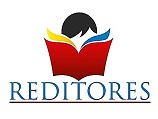Critical vision of the theory of strategic management. A methodological and epistemological evaluation.
Keywords:
strategic management, competitive advantage, Michael PorterAbstract
This article is an epistemological and methodological questioning the conceptual basis of the theory of Michel Porter's competitiveness and explanatory evidence weaknesses that jeopardize its worldwide recognition. Confronted with arguments Habermas, Morgan Galbraith, Klein and work Powel and Peffer, the Porterian theory exposes contradictions that show theoretical weakness, as the absence of building the concept of competitive advantage and epistemological poverty as the intended normativizo of this theory, whose arguments suffer positive reductionism and led to its engine to recognize the value of other adverse to his speech proposals. According to the author, the limited predictive capacities of their five forces, reveal the ideological intention of Potter, who assumes via easy validate the power of the powerful, while the methodological evade responsibility for their statements and in the recognition afinaza experts, rather than the thoroughness of their proposals.Article Metrics
Abstract: 1955 PDF (Español (España)): 1129References
Aguayo, R. (1990) Dr. Deming: The American Who taught the Japanese About Quality, Secaucus, NJ, Carol Publishing Group.
Argyres, N. and McGahan, A. M. (2002a) "Introduction: Michael Porter's Competitive Strategy", Academy of Management Executive, 16(2), 41-42.
Argyres, N. and McGahan, A. M. (2002a) "An Interview with Michael Porter", Academy of Management Executive, 16(2), 43-52.
Bartlett, C. A. and Ghoshal, S. (2002) "Strategic advance", Executive Excellence, 19(7), 7-8.
Brandenburger, A. (2002) "Porter's added value: High Indeed!", Academy of Management Executive, 16(2), 58-60.
Deming, W. E. (1986) Out of the Crisis: Quality, Productivity and Competitive Position, Cambridge, MA, Cambridge University Press.
Galbraith, J. K. (1967) The New Industrial State, Boston, MA, Houghton Mifflin.
Haberman, J. (1990) Moral Consciusness and Communicative Action, Cambridge, MA, MIT Press.
Klein, J. (2001) "A critique of Competitive Advantage", Paper presented at Critical Management Studies Conference, 11-13 July, Manchester.
Mintzberg, H., Ahlstrand, B. W., Lampel, J. (1998) Strategic Safari: A Guided Tour through the Wilds of Strategic Management, New York, NY, Free Press.
Morgan, G. (1997) Images of Organization, 2nd edition, Thousand Oaks, CA, Sage Publications.
Nonaha, I. and Takeuchi, H. (1995) The knowledge-Creating Company: How Japanese Companies Create the Dynamics of Innovation, New York, NY, Oxford University Press.
Pfeffer, J. (1994) "Competitive advantage through people", California Management Review, 36(2), 9-28.
Pfeffer, J. and Veiga, J. F. (1999) "Putting people first for organizational success", Academy of Management Executive, 13(2), 37-48.
Popper, K. R. (1972) Objective Knowledge: An Evolutionary Approach, Oxford, Clarendon Press.
Porter, M. E. (1979) "How competitive forces shape strategy" Harvard Business Review, 57(2), 137-145.
Porter, M. E. (1980) Competitive Strategy: Techniques for Analyzing Industries and Competitors, New York, NY, Free Press.
Porter, M. E. (1985a) Competitive Advantage: Creating and Sustaining Superior Performance, New York, NY, Free Press.
Porter, M. E. (1985b) "Technology and Competitive Advantage" Journal of Business strategy, 5(3), 60-78.
Porter, M. E. (1990) The Competitive Advantage of nations, New York, NY, Free Pres.
Porter, M. E. (1991) "Towards a dynamic theory of strategy", Strategic Management Journal, 12 (Winter Special Issue), 95-117.
Porter, M. E. (1997) "Creating Advantages", Executive Excellence, 14(12), 17-18.
Porter, M. E. and Sterm, S. (2001) "Innovation: Location matters", MIT Sloan Management Review, 42(4), 28-36.
Powell, C. P. (1995) "Total Management as competitive advantage: A review and empirical study", Strategic Management Journal, 16(1), 15-37.
Prahalad, C. K. and Hamel, G. (1990) "The core competence of the corporation", Harvard Business Review, 68(3), 79-91.
Stalk, G., Evans, P. and Shulman, L.E. (1992) "Competing on capabilities: The new rules of corporate strategy", Harvard Business Review, 70(2), 54-66.sz





















